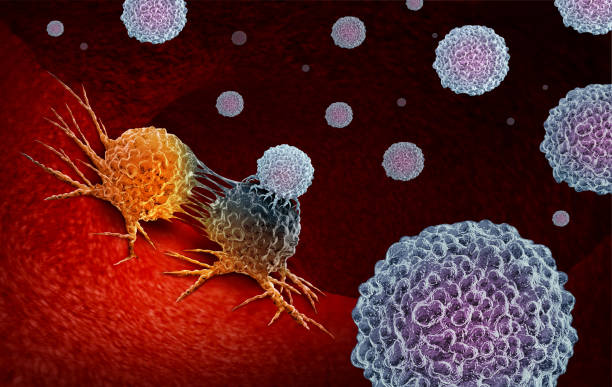Introduction
Cancer remains one of the most daunting challenges in medicine, with millions of new cases diagnosed annually worldwide. Traditional treatments such as chemotherapy, radiation, and surgery have long been the mainstay in oncology; however, the emergence of cancer vaccines marks a transformative step in the fight against this complex disease. Ongoing research and clinical trials are at the forefront of this innovative approach, aiming to enhance the immune system’s ability to recognize and combat cancer cells.
Understanding Cancer Vaccines
Cancer vaccines work by stimulating the immune system to identify and attack cancer cells. Unlike traditional vaccines that prevent infections, cancer vaccines are designed to treat existing cancers or prevent their recurrence. They can be broadly categorized into two types: preventive vaccines and therapeutic vaccines. Preventive vaccines, like the HPV vaccine, aim to ward off cancers associated with viral infections. In contrast, therapeutic vaccines seek to treat cancers by eliciting a strong immune response against tumors.
Mechanisms of Action
Cancer vaccines can utilize different mechanisms to achieve their goals. Some vaccines contain tumor antigens, which are substances that trigger an immune response. Others may employ dendritic cells—key players in the immune system that can be manipulated to present these antigens more effectively. Additionally, novel approaches are incorporating messenger RNA (mRNA) technology, which has gained significant attention due to its success in COVID-19 vaccines. By instructing cells to produce specific antigens, mRNA vaccines can potentially prompt robust immune responses against various cancers.
Current State of Research
The landscape of cancer vaccine research is vibrant and continually evolving. Over the past few years, numerous clinical trials have been initiated to evaluate the safety and effectiveness of various vaccine candidates across different types of cancer. According to the National Cancer Institute, as of 2024, there are hundreds of ongoing trials involving cancer vaccines, encompassing a diverse array of tumor types, including melanoma, breast, prostate, and lung cancers.
Promising Candidates in Clinical Trials
1. Sipuleucel-T (Provenge): This is one of the first FDA-approved therapeutic cancer vaccines, specifically for prostate cancer. Provenge is designed to stimulate an immune response against prostatic acid phosphatase, an antigen expressed in most prostate cancer cells. Clinical trials have demonstrated an improvement in overall survival for patients treated with Provenge compared to those receiving placebo.
2. Personalized Cancer Vaccines: Ongoing trials are exploring personalized vaccines tailored to an individual’s unique tumor profile. By analyzing tumor mutations and identifying neoantigens—novel proteins produced by these mutations—researchers aim to create bespoke vaccines that effectively target a patient’s specific cancer.
3. HPV Vaccines: The success of vaccines like Gardasil in preventing HPV-related cervical cancer has opened avenues for therapeutic vaccines targeting existing HPV-associated cancers. Trials are investigating the efficacy of these vaccines in patients with cervical and oropharyngeal cancers, showing promise in eliciting strong immune responses.
4. mRNA Vaccines: Following the success of mRNA technology in the pandemic, several trials are underway to evaluate mRNA-based vaccines for cancer. These vaccines aim to provoke immune responses against tumor-specific antigens and have shown encouraging early results in melanoma and other cancers.
Challenges and Considerations
Despite the optimism surrounding cancer vaccines, several challenges persist. One of the main hurdles is the variability of immune responses among individuals. Tumor heterogeneity can lead to differential responses to vaccines, necessitating further research to understand the underlying mechanisms and improve efficacy across diverse patient populations.
Additionally, there is a need for robust biomarker identification to predict which patients are most likely to benefit from vaccination. The integration of advanced genomic and proteomic technologies is crucial for identifying suitable candidates and personalizing vaccine approaches.
Future Directions
The future of cancer vaccines is promising, with an increasing number of innovative approaches being explored. Combination therapies, where vaccines are administered alongside checkpoint inhibitors or other immunotherapies, are a focal point of current research. This strategy aims to enhance overall efficacy and broaden the range of patients who can benefit from vaccination.
Moreover, advancements in technology, including artificial intelligence and machine learning, are expected to play a significant role in the development and optimization of cancer vaccines. These technologies can assist in predicting immune responses, personalizing treatment plans, and identifying new targets for vaccine development.
Conclusion
The development and testing of cancer vaccines represent a rapidly evolving field with significant potential to transform cancer treatment. Ongoing clinical trials are critical for understanding the safety and efficacy of various vaccine candidates, paving the way for new therapies that harness the power of the immune system. As research progresses, it is essential to address the challenges of variability in immune responses and personalize approaches to maximize the benefits of cancer vaccination. With continued investment and innovation, cancer vaccines may soon become a cornerstone of cancer therapy, offering hope to millions affected by this disease.
See the full article: https://www.nextmsc.com/blogs/cancer-vaccine-market-trends





Comments